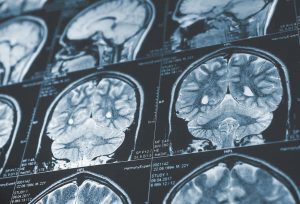Dr. Ralph Gonzalez, Neurologist, Provides Some Insight.
 What are some risk factors associated with stroke?
What are some risk factors associated with stroke?
• Overweight
• Sedentary life
• Binge Drinking
• Diabetes
• Smoking
• High blood pressure
• High cholesterol
• Family history of stroke
• Cardiovascular diseases
• Age – people above age 55 are at higher risk
• Gender – men are at high risk of stroke than women
What are some of the behavioral changes following a stroke?
After a stroke, an individual may experience emotional and behavioral changes. This is because a stroke impacts the brain, and the brain controls our behavior and emotions.
Changes may include:
• Irritability
• Forgetfulness
• Carelessness
• Confusion
• Anger
• Anxiety
• Depression
These behavioral and emotional changes tend to improve over time. Stroke survivors can find support through their family, friends, stroke support groups, church and therapy.
What can you do to prevent or reduce the likelihood of a stroke?
Stroke prevention strategies tend to mirror those for heart disease.
• Control diabetes
• Monitor blood pressure
• Avoid illicit drugs
• Quit smoking and limit or avoid alcohol
• Healthy eating
• Exercise
• Decrease the amount of cholesterol and saturated fat in your diet
Are there medications that might predispose someone to having a stroke?
Nonsteroidal anti-inflammatory drugs (NSAIDs) increase the risk of stroke.*The increase is minor, but it exists.
As the loved one of a stroke patient, what can I expect and how will this impact me?
The aftermath of a stroke can be stressful and cause strain in relationships. A review of 78 studies, published in the American Heart Association® journal Stroke in 2009, found up to 54 percent of families said stroke had a negative impact on their relationships. Caregivers may try to do everything for their loved one and let their loved one assume a “sick” role and stay in bed. This can make things much more difficult. I recommend looking for support groups through local hospitals and social media groups. These provide a place to get advice and connect with families who are going through similar experiences.
For more information, visit manateememorial.com/services/stroke-and-cerebrovascular-center.
206 Second Street East, Bradenton, FL 34208
941-746-5111









